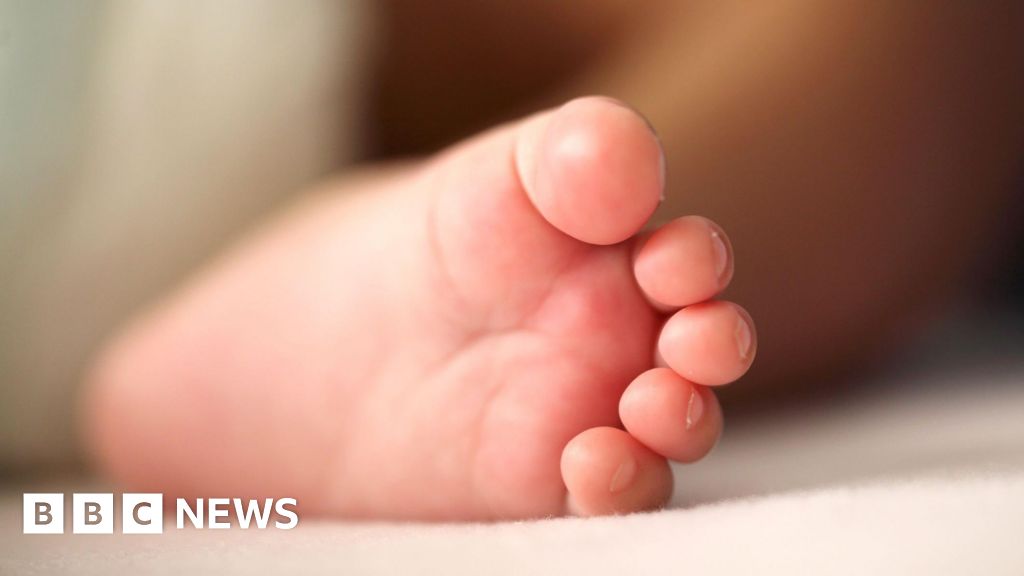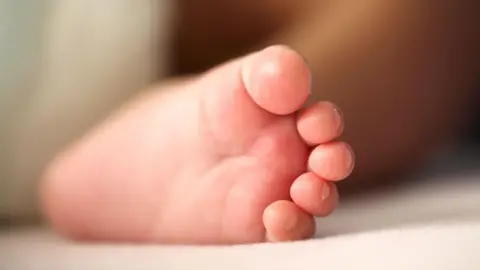 Getty Images
Getty ImagesA couple in India have said they are “delighted” after a court ordered a hospital to hand over the frozen semen sample of their dead son to them so they could have a grandchild through surrogacy.
The landmark Delhi High Court order came after a four-year legal battle.
“We were very unlucky, we lost our son. But the court has given us a very precious gift. We would now be able to get our son back,” the mother, Harbir Kaur, told the BBC.
Ms Kaur and her husband Gurvinder Singh petitioned the court after Delhi’s Ganga Ram Hospital in December 2020 refused to release their son’s semen which was stored in their fertility lab.
The couple’s 30-year-old son, Preet Inder Singh, had been diagnosed in June 2020 with Non-Hodgkin’s Lymphoma – a form of blood cancer – and admitted to the hospital for treatment.
“Before he began chemotherapy, the hospital advised him to store his semen as the treatment could adversely affect the quality of his sperm,” Gurvinder Singh told the BBC.
Preet Inder, who was unmarried, agreed and his sample was frozen on 27 June 2020. He died in early September.
A few months later, when the grief-stricken parents sought access to their son’s frozen sperm, the hospital declined their request. The couple then petitioned the Delhi High Court.
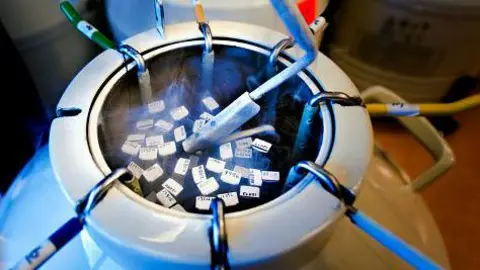 Getty Images
Getty ImagesThe couple, who are in their 60s, told the court that they would bring up any child born using their son’s semen sample. And in the event of their death, their two daughters have given an undertaking in court that they will take full responsibility for the child.
In her order last week, Justice Prathiba Singh said that “under Indian law, there was no prohibition against posthumous reproduction” if the sperm owner had given consent.
She added that parents were entitled to the sample as in the absence of a spouse or children, they became legal heirs under the Hindu Succession Act.
The couple say they approached the court because they wanted to carry on his “legacy” and that the order would help them preserve a connection with him and help their family name to continue.
“He loved his sisters and was much loved by his friends. He is the screensaver on my phone. I start my day by looking at his face every morning,” Ms Kaur said. She did not want to share a photo of him with the BBC over privacy concerns.
She added that the family was considering using his sperm in surrogacy and that one of her daughters had agreed to be the surrogate. “We will keep it in the family,” she said.
The case is rare, but not without precedent, her lawyer Suruchii Aggarwal told the BBC.
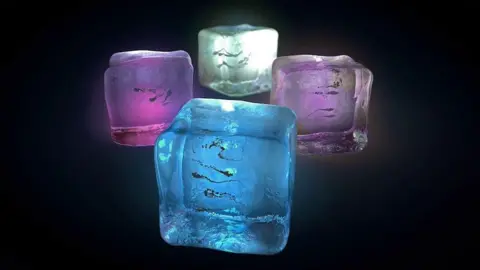 Getty Images
Getty ImagesIn court, she cited the 2018 case of a 48-year-old woman in the western Indian city of Pune who got twin grandchildren through surrogacy using the semen of her 27-year-old son who had died of brain cancer in Germany.
Her son, who was also unmarried, had authorised his mother and sister to use his semen after his death and the hospital in Germany handed over his sample to them.
Ms Aggarwal also gave the example of a case from 2019 where the New York Supreme Court allowed the parents of a 21-year-old military cadet killed in a skiing accident to use his frozen sperm to have a grandchild.
In her order, Justice Singh also cited a number of cases of posthumous reproduction, including a 2002 case from Israel where the parents of a 19-year-old soldier killed in Gaza had obtained legal permission to use their son’s sperm to have a child through a surrogate mother.
So if there is a precedent, why did the hospital reject the couple’s request?
As Justice Singh noted in her order, there is no international consensus on the issue.
The US, UK, Japan, Czech Republic and some other countries allow posthumous reproduction with written consent. Australia imposes an additional condition of a one-year wait period after the death to allow time for emotions to settle.
The practice is prohibited in a number of countries such as Italy, Sweden, Switzerland, France, Malaysia, Pakistan, Hungary and Slovenia, while most of India’s South Asian neighbours – Sri Lanka, Nepal, Bhutan and Bangladesh – have no guidelines.
And even in countries that have laws on posthumous reproduction, a majority of cases involve a spouse who wants to use frozen eggs or sperm to conceive.
The number of bereaved parents seeking sperm of their sons has risen in Israel, and as the conflict with Russia has escalated, soldiers in Ukraine are offered semen cryopreservation free of charge. But in India, this is still relatively rare.
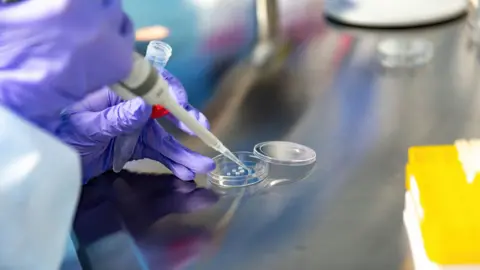 Getty Images
Getty ImagesIn court, Ganga Ram Hospital said legally they could only release the sample to the spouse. They said there were no clear laws or guidelines that governed the release of semen samples of an unmarried deceased male to his parents or legal heirs.
The Indian government also opposed the couple’s petition, saying that surrogacy laws in India were meant to assist infertile couples or women, not people who wanted to have a grandchild.
The authorities also pointed out that Preet Inder was unmarried – India’s Assisted Reproductive Technology (ART) Act 2021 bars single people from having children via surrogacy – and that he had not left any written or oral consent for the use of his frozen sperm so his parents did not have an automatic right to use it.
Ms Aggarwal, the couple’s lawyer, argued in court that while filling in the form for storing his semen, Preet Inder had clearly specified that it was for the purpose of IVF.
The form, she told the BBC, had the mobile numbers of both father and son, which implied consent. She pointed out that the father had been paying the lab for preserving the sample.
The ART Act, she said, was introduced to stop commercial use of surrogacy, to regulate and supervise clinics, not to impinge upon personal freedoms of aggrieved parents.
Justice Singh agreed with Ms Aggarwal’s argument that Preet Inder had given consent for his sperm to be used for the purpose of having children.
“He was not married and did not have any partner. He intended for the sample to be used in order to bear a child. When he passed away, the parents being the heirs of the deceased, and semen samples being genetic material and constituting property, the parents are entitled for release of the same.”
Under those circumstances, the court said they could not prohibit the couple from accessing the semen sample of their son.
The court order, Ms Kaur says, has offered her a “glimmer of hope, a light” that “we will be able to bring our son back”.
“I have prayed every day to fulfil all my child’s unfulfilled desires. It’s taken four years, but my prayers have been answered,” she adds.
